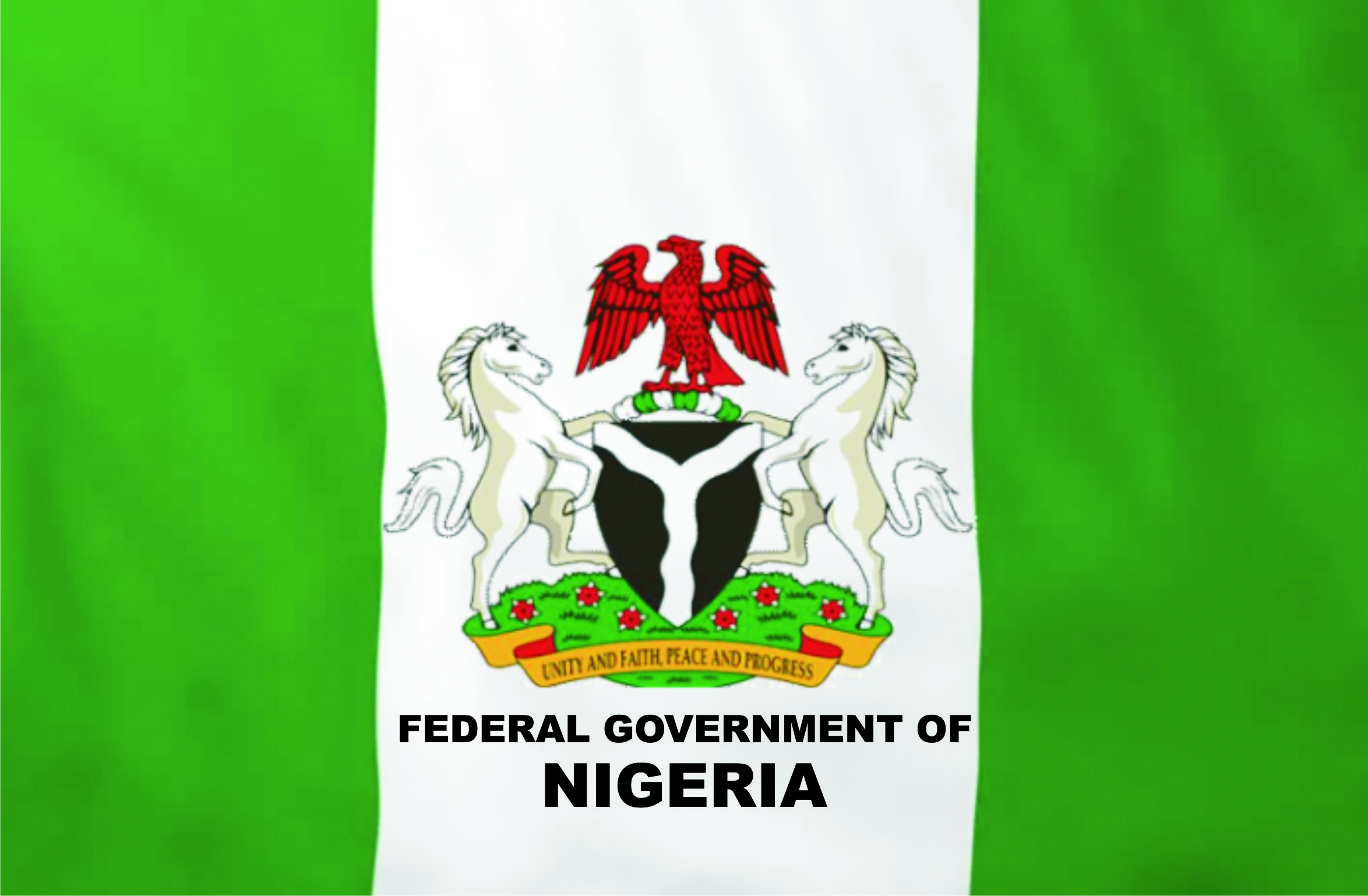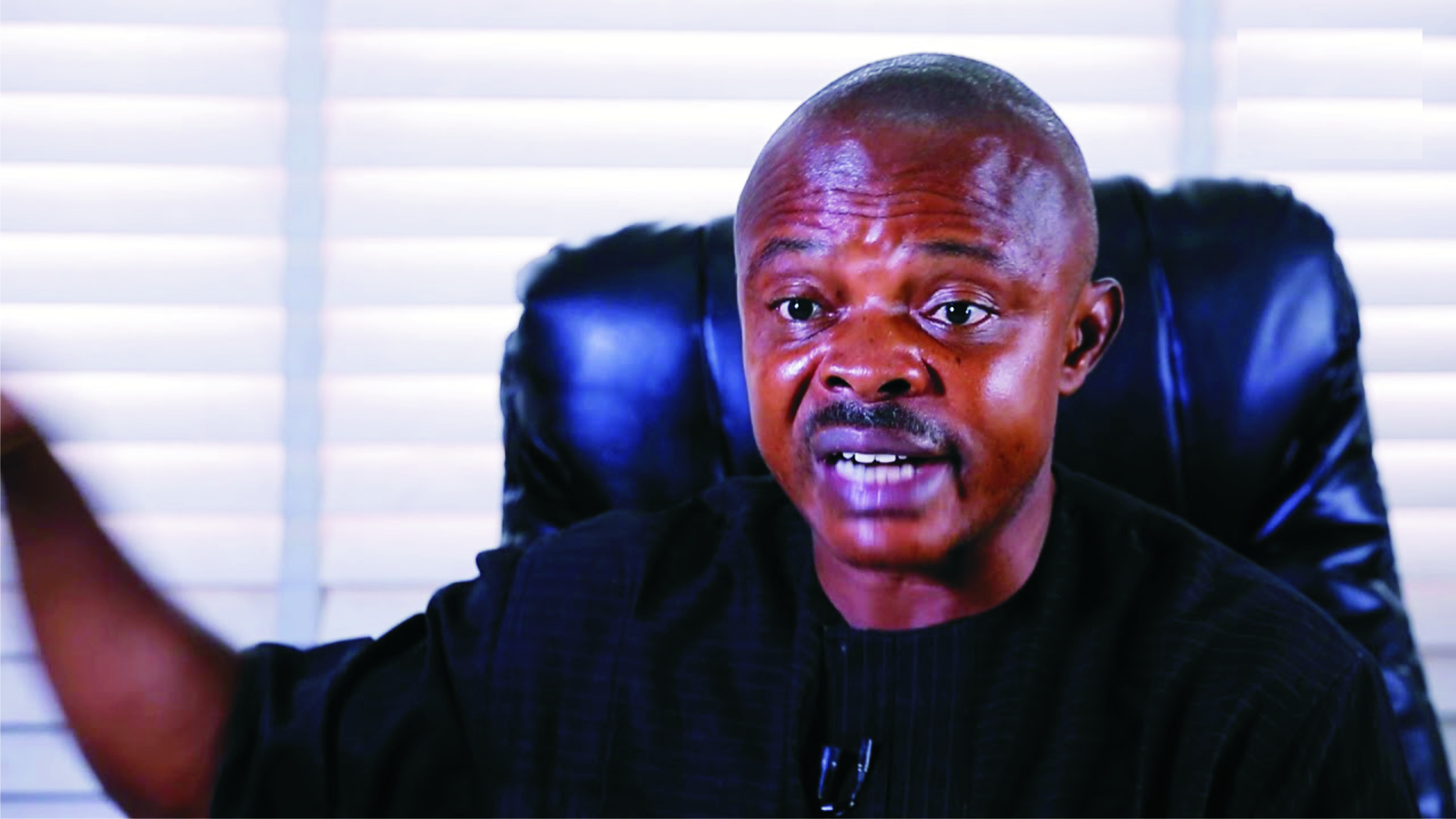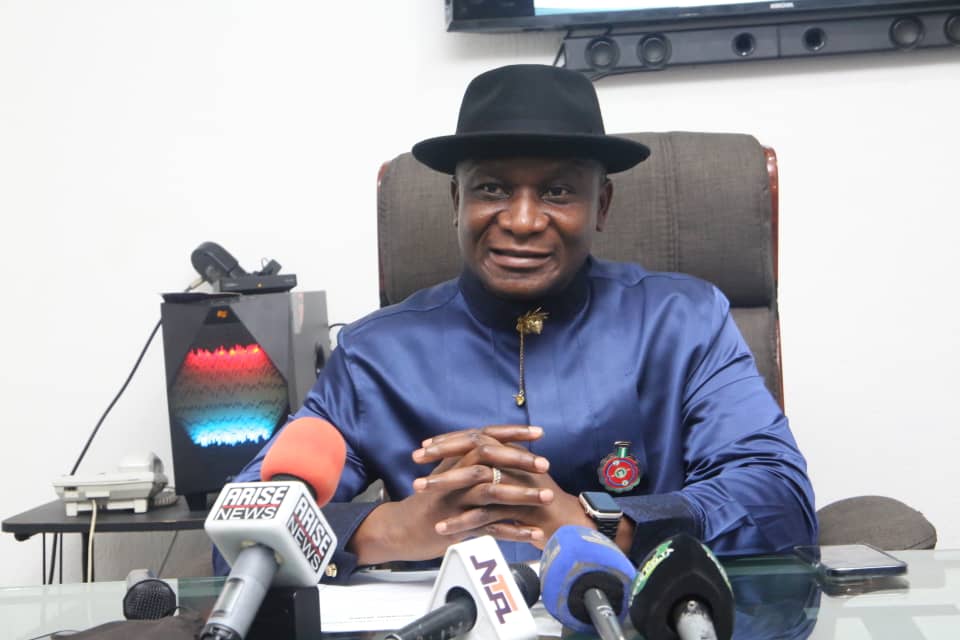News
FG Insists On Borrowing More To Fund Critical Infrastructure

The Federal Government (has said it will borrow more money to fund critical infrastructure, saying Nigeria would not make any meaningful headway in its quest for development if it doesn’t borrow more.
The Minister of Finance, Budget and National Planning, Mrs Zainab Ahmed, said this, yesterday, at a maiden special media briefing by the MDAs organized by the Presidential Communications Team at the Presidential Villa, Abuja.
Even as she noted that Nigeria has expanded its borrowing, the minister said the country was still below 25 per cent debt to GDP ratio and within borrowing limit.
According to her, borrowing was necessary to roll out infrastructure now.
Responding to question on excessive Chinese loans taken by the country and consequences on debt servicing, she explained, “On the issue of Chinese loans, if I may be permitted to speak to the question by the business.
“I think it’s useful to look at the budget for each year; look at the revenues, look at the expenditure, if you take out the new borrowing, really, what will the size of the budget be? How much can the government spend?
“So, there will be a lot of capital projects that are affected. So, we need to look at it that borrowing is, even as you see it in the budget every year, used to support infrastructural development. Otherwise, there will be a challenge.
“Secondly, let me add. I think we’re going through a process where we need to borrow now. Let’s just say in the short to medium term, to get the economy going, while we also expect revenues to improve.
“So, in terms of the pressure of debt service, by the time the revenue comes up, that should be lower, but there are some things you need to do now, to ensure that revenue comes up. So, we need to keep that in mind that if the economy grows and revenues improve, then debt service to revenue, in future, should be lower.”
While acknowledging that the government’s borrowing has become a touchy issue, Ahmed maintained that it is not misplaced.
She further said, “There is a lot of sensitivity in Nigeria about the level of borrowing by the government and it is not misplaced. And I said earlier that the level of borrowing is not unreasonable, it is not high.
“The problem we have is that of revenue. So, what we need to do is to increase revenue to be able to enhance our debt to GDP obligation capacity.
“If we say we will not borrow and therefore not build rails and major infrastructure until our revenue rises enough, then, we will regress as a country.
“We will be left behind, we won’t be able to improve our business environment and our economy will not grow. So, it is a decision that every government has to take.
“Our assessment is that we need to borrow to build our major infrastructure. We just need to make sure that when we borrow, we are applying the borrowing to specific major infrastructure that will enhance the business environment in this country.
“Again, we all have to work not just the Federal Government but state governments to increase our revenue to enhance our debt service obligations.
“We also have to make sure that when we are choosing the projects, we are choosing carefully the ones that will enhance business environment so that more revenue yields come into the treasuries of the country.”
Still on the borrowing threshold, the minister stated, “The total borrowing of the country as at 31st of December is 21.6% of the GDP.
“So, if we were not looking at adding the other category of loans that I mentioned, we don’t even need to increase that at this time. As at 2019, the debt to GDP ratio was 19.2 per cent. So, only 2 per cent was added.”
She affirmed that all that is needed is for government to increase its local revenue, saying, “The more revenue we realize out of the budget, the less we borrow.
“As we see the oil price rising and provides us with more revenue, it provides us with some reliefs. We will be able to reduce our borrowing. So, it is a positive thing for us.
“The minister revealed that the Federal Executive Council (FEC) will soon to approve a policy mandating Ministries, Department and Agencies (MDAs) to buy locally manufactured vehicles.
She said as part of measures by government to control inflation in the country, it has already reduced duties on imported vehicles from 35 to 5 per cent with a view to lessening the high cost of transportation, which in turn, impacts inflation.
According to her, patronizing locally made vehicles will mitigate against dumping due to reduced duties.
The minister maintained that the Federal Government is committed to purchasing locally made goods and vehicles and would engage with state governments to ensure that they do same so as to encourage local production.
On the new import duty policy, she said that the Nigeria Customs Service has already directed all its outposts to commence its implementation.
She added, “Nigerian Customs has reviewed these guidelines and has notified all its operational posts to start implementing the new rates. So, it has taken effect.
“The Federal Government is committed to buying made in Nigeria products and buying made in Nigeria vehicles in particular. So, we will be hoping to have a Federal Executive Council approval to compel Federal Government agencies to buy made in Nigeria vehicles as much as is practicable.
“So, when the security agencies need a security vehicle that is special design, and you don’t have it in Nigeria, we will still need to buy the ones that is outside.
“We’re hoping to also engage the states and encourage the states to take similar measures. It is important for us because we want to make sure the automotive industry survives and grows.
“The Federal Ministry of Industry, Trade and Investment has just finished a review of automated policy, which has been running now for seven years.
“I must say that the policy has not been reviewed before. So, this is the first review that is being done and the essence of the review is to see whether it has achieved the designed targets.
“Once the ministry gets its approvals, then the review will be announced and perhaps there will be a refreshing of the measures that are contained in that policy.”
News
May Day: Labour Seeks Inclusiveness In Policy-making

The Organised Labour yesterday, called on the Federal Government to ensure inclusiveness in policy making and guide against erosion of rights, such as free speech and association.
The President, Nigeria Labour Congress (NLC), Mr Joe Ajaero made the call at the 2025 Workers’ Day celebration held at the Eagle’s Square, Abuja.
The Tide source reports Ajaero and the President, Trade Union Congress, Mr Festus Osifo delivered a joint statement on behalf of the organised labour at the event.
Ajaero described May Day as, not only a moment to honour workers’ sacrifices, but also a platform to demand justice and accountability from those in public office.
He frowned at the alleged suppression of protests, and the erosion of rights of workers by some agents
According to him, workers have a duty to resist economic injustice, insecurity, and policies that undermine their dignity.
Speaking on the theme of the day, the NLC President underscored the need for Nigerian workers to reclaim the civic space and resist policies that contribute to worsening economic conditions.
“Our theme this year – “Reclaiming the Civic Space in the midst of Economic Hardship – reflects the urgent need for citizens to protect democracy and push back against repression.
“The civic space, where Nigerians express their concerns and challenge injustices is shrinking.
“If we fail to reclaim this space, the foundation of our democracy risks collapse,” he said
Ajaero, therefore, urged workers to unite and resist division, fear, and despair.
He also urged them to mobilise and organise for change, declaring that the right to demand better conditions is non-negotiable.
“Without workers, there is no society; without labour, there is no development. We must take our place in the fight for economic justice and democratic governance.”
Speaking in the same veins, Osifo said workers are the backbone of the nation—the educators, healthcare providers, builders, farmers, and innovators who sustain its economy -.
He stressed the need for the labour to reclaim the civic space even in the midst of economic hardship.
News
2025 UTME: JAMB Disowns Site Requesting Payment From Candidates

The Joint Admissions and Matriculation Board (JAMB) has disassociated itself from a fraudulent site requesting payments from candidates who missed the ongoing 2025 Unified Tertiary Matriculation Examination (UTME).
The board said that the site, “Copyrightwriter Personal J Rescheduling Flw” and account number 8520641017 at Sterling Bank, associated with it, are scam.
The disclaimer is contained in a statement made available to newsmen in Abuja on Thursday by the Board’s Public Communication Advisor, Dr Fabian Benjamin.
Benjamin said the account is being exploited to defraud unsuspecting candidates who missed their UTME.
“We issue this urgent notice to inform the public about this nefarious scheme targeting candidates who were unable to participate in the UTME.
“Some unscrupulous individuals are deceitfully soliciting payments of N15,700 under the false pretence of offering rescheduling services for the examination.
“Let us be unequivocal: this, it is a blatant scam, and we are confident that the public will not fall prey to such cheap and regressive tactics.
” The individuals behind this scam have no affiliation with JAMB or any legitimate government agency.
“The account details provided in these communications are entirely fictitious and bear no connection to any official processes; they exist solely for the purpose of perpetrating fraud,” he said.
Benjamin called on Sterling bank to take immediate and decisive action against this criminal activity.
According to him, JAMB has reported the matter to the relevant security agencies and actively pursuing those responsible for this deceitful act.
He further said that “JAMB does not reschedule examinations for candidates who miss their scheduled tests due to reasons unrelated to the Board’s actions”.
He, however, said that the Board is conducting a thorough investigation for candidates whose biometrics failed during verification and were thus unable to sit for the examination.
He said those without discrepancies would be invited to retake the examination at no cost , stressing that “no cost is required”
“It is imperative to understand that JAMB does not charge any fees for examinations after a candidate has completed their registration.
“We strongly urge all candidates to remain vigilant and not to succumb to these fraudulent schemes.
“Protect yourselves and report any suspicious activity immediately,” he explained.
News
NDDC Seeks UN’s Support To Accelerate Niger Delta Development

The Niger Delta Development Commission (NDDC) has expressed its willingness to partner with the United Nations (UN) to accelerate the development of the Niger Delta region.
Dr Samual Ogbuku, Managing Director of the NDDC, made the appeal in a statement issued by the commission’s Director of Corporate Affairs, Mrs Seledi Thompson-Wakama, in Port Harcourt on yesterday.
According to the statement, Ogbuku sought the UN’s support during his visit to the UN Resident and Humanitarian Coordinator (UNRHC), Mr Mohammed Fall, at the UN regional office in Abuja.
He called on the global body to provide the NDDC with technical assistance and expert services to support the region’s development.
“We are eager to collaborate with the UN, recognising that the state governments in the region and the NDDC alone cannot achieve the level of regional development required,” he said.
Ogbuku identified key areas where support would be needed, including the provision of portable and affordable drinking water powered by high-tech solar energy sources.
He also highlighted the importance of reforesting the mangrove swamps, which have been severely damaged by decades of environmental degradation caused by oil exploration in the Niger Delta.
“Although the NDDC has made progress in providing solar-powered streetlights across the region, we still require UN support in delivering solar energy solutions for residential buildings.
“We also wish to explore the possibility of installing solar mini-grids in homes across communities, which would boost local commerce and trade,” he added.
The NDDC managing director further appealed for increased UN involvement in areas such as healthcare, education, youth training, gender development, and food security.
Ogunku stated that such interventions would significantly enhance the standard of living in the region.
In response, Fall affirmed the UN’s readiness to collaborate with the NDDC to fast track development in the Niger Delta.
He assured that the UN would support initiatives in food security, job creation, education, and renewable energy, among other areas.
“We aim to approach development in the Niger Delta holistically, rather than focusing solely on environmental pollution.
“This is merely an entry point; however, the UN’s development vision aligns with the Sustainable Development Goals (SDGs), which are designed to positively impact various aspects of people’s lives,” Fall stated.
He assured the NDDC of continued and fruitful engagements to drive the region’s development.

